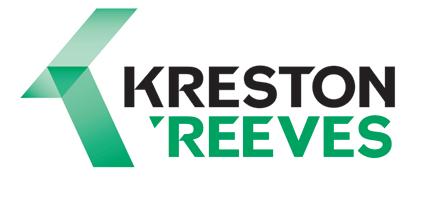
2 minute read
Breaching lending covenants –how should a business respond?
With interest rates set to be high for some time to come, the cost of borrowing for UK businesses is rising. Lenders are scrutinising borrowing, looking for the early signs of borrower stress, particularly in loan and cash flow covenants.
Banks are left facing a difficult decision when a borrower breaks its lending covenants. They cannot simply ignore it, nor are they likely to panic, demanding a review of the business’s performance. A positive, working relationship with your banking partner will most likely determine next steps.
Early Warning Signs
Banks look to a wide range of sophisticated early warning signs when stress testing a borrower’s ability to meet repayments. These typically include: n Poor or inaccurate management information supplied by the client. There may be concerns that this is deliberately vague to avoid scrutiny. n Late management information, including covenant tests. Borrowers may be deliberately trying to avoid the bank seeing the current liquidity issues. n Late audited accounts, poor bookkeeping and avoiding publishing bad results. This includes where accounting periods are suddenly extended on Companies House. n Delaying payment to suppliers. n Adopting HMRC’s time to pay arrangements. This can be a good thing in the right circumstances but may mask more signifi cant issues. n Missed loan repayments. This may be a seasonal issue but equally a clear warning sign. n Regularly exceeding overdraft facilities, possibly through overtrading or just loss making. n Debt on the bank account that never swings into credit. n Increased credit score enquiries, as suppliers become more cautious. n Declining credit score, as poor results see suppliers wanting payment in advance. n CCJs, as suppliers seek repayment via official channels.
HOW SHOULD BUSINESSES RESPOND?
It is here that a business will discover whether its bank is the ‘trusted adviser’ it claims to be. Banks will show empathy where a positive and knowledgeable relationship exists and may suggest remedies to address any challenges. This might include: n capital repayment holidays; n loan term extensions, for example, with CBILs extended from fi ve to ten years; or n using the new ‘series 3’ recovery loan scheme.
If the lender cannot see a way to support the business, there are plenty of active lenders keen to work with businesses with a good track record. However, care should be taken as many lenders are suggesting fi xed rates to help them make the debt service cover work. And whilst a fi xed rate might be the right answer, a business should always be offered a fixed rate and a variable rate option so an informed decision can be made.
New borrowers also need to consider the affordability of borrowing. It is not uncommon for lenders to be offering a variable lending rate using a default base rate of 7% plus margin, meaning total borrowing costs in excess of 11%.
Take Advice
Seeking advice early is often critical to achieving the most positive outcome for a business, particularly if there are concerns about what’s coming around the corner in these uncertain times.
If worried about breaching covenants, then a restructuring professional may be able to help consider strategies that are available to ensure that the business is as effi cient and cost-effective as it can be. Lenders will often take comfort from a business seeking professional advice and may be more willing to work with them to see out a diffi cult period, particularly when supported by a clearly structured roadmap out of the current difficulties.

The advice that a business will need will vary greatly and, depending on the situation, can be as light touch as required, particularly where cash may be a real concern.
If you’d like to fi nd out more about the services that we can offer when your situation is becoming stressed, please do get in touch with John Walsham:
The Competition & Markets Authority strongly believed it does. Jonathan Compton, Partner, Dispute Resolution at DMH Stallard discusses its recent findings











